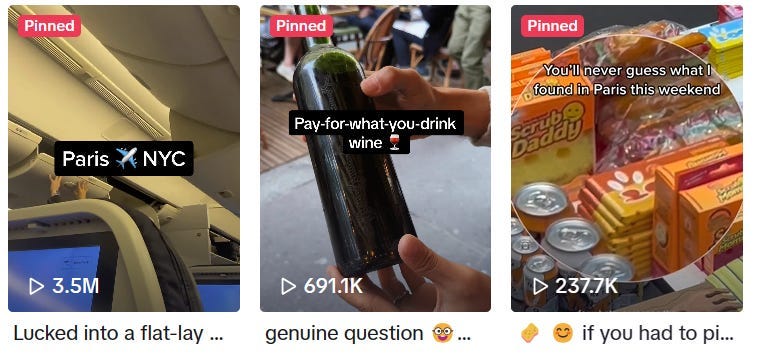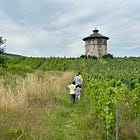The Joy of Being Terrible
Why it's good to be bad at things
There’s a particular type of humiliation reserved for adults who decide to learn something new. It’s not so much awkward as it is a complete dismantling of the ego.
My boss recently shared a quote that’s stayed with me:
"Every act of conscious learning requires the willingness to suffer an injury to one’s self-esteem. That is why young children, before they are aware of their own self-importance, learn so easily; and why older persons, especially if vain or important, cannot learn at all."
Learning as an adult is humbling in the best and worst ways—which is exactly why it’s so important for us to keep doing it.

ABCs and 123s
The easiest example I can think of is learning a language. You start at the most basic level: drilling ABCs, 123s, and colors. As a grown adult, fluent in your native tongue, you suddenly find yourself struggling to understand the response when you ask where the bathroom is. Surviving the encounter can feel like the intellectual peak of your day. Then, when you finally attempt a conversation beyond those basics, the person across from you looks at you like you’ve just landed from a galaxy of grammatical errors.
Living in France has been a masterclass in this.
When I first moved here, I didn’t speak a word of French. I’d studied Spanish and Italian in school, but they didn’t help much when I had to navigate a last-minute doctor’s visit in French. Stressed and barely able to communicate, I mimed, relied on Google Translate, and stumbled through the experience. The doctor sent me to a lab, the lab sent me for bloodwork, and at every step, I could barely explain what was wrong or what I needed. By the time I got home, I was overwhelmed and demoralized. I cried.
Three and a half years later, I go to my kiné (physical therapist) every week and explain, entirely in French, where my shoulder hurts, how my range of motion has changed, and what recovery exercises feel like. Compared to those early days, it feels easy, and like a massive win. More importantly, I’ve learned enough so that I don’t panic anymore—I know I can get through it.
The Beauty of Being Bad
This is true of so much we experience. We’re not born great at most things. Most skills are learnable.
Starting anything new—picking up a new sport, trying a new cooking technique, becoming a manager, building a business, or just tackling a hobby—requires surrendering to being bad at it. Like, really bad. Comically bad. You look at others doing it effortlessly and feel like you’re at the bottom of a cliff, staring up.
Being a beginner is actually a fresh way of seeing the world.
For example, a few friends and I started hosting crafting nights. We’ll send each other wild crafting projects we’ve seen on TikTok, Pinterest, or Instagram, and then try them out. Not because we’re good at it, but because it’s fun, mindless, and a great excuse to get together.
So far, we’ve painted taper candles, decorated baby onesies for a friend who just gave birth, and even attempted candle-making. The tapers turned out beautiful. The onesies were adorable—even the onesie that
boldly and accidentally embroidered shut so no baby could ever get in. The DIY candles, on the other hand, were a full-on disaster. Not only were they hideous, but we realized that the dried flowers we suspended in wax for “style” were massive fire hazards once the wax burned down. But we laughed until we cried.Even in this hilarious failure, we stretched our brains, used our hands in new ways, and walked away with a new perspective on something as small as candles. And when I bought myself a beautiful Trudon candle a few weeks later, I felt a deep appreciation for the craftsmanship behind it.
Being bad at something is more a gift than a curse. It’s a sandbox where I can stop comparing myself to others, ask more questions, and take risks I wouldn’t if I were already good at it. It makes me kinder toward myself and others. And that curiosity spills over into how I work, how I think, and how I understand others.
Learning by Doing
With 2024 wrapping up, I’m already thinking about the year ahead. Most of my goals—at least the ones that matter—include trying at least one thing that makes me deeply uncomfortable.
In years past, it’s been learning a new sport, a new skill, a new way of working. Sometimes I stick with it long-term, sometimes I don’t, but that isn’t really the point. The point is the effort and the freedom to be bad at something. Accepting that it’s going to feel awkward and humbling and probably a little bit cringe. And then doing it anyway.

Last year, I posted on TikTok every day for 10 months as part of a New Year’s resolution to shorten the distance between having an idea and doing a thing. My first posts were comically bad: I relied on preset templates, fed in still photos, and hoped for the best. By the end, I had a few videos go viral and a firm understanding of what worked. I understood how the TikTok creator ecosystem functioned, how video editing was evolving, how to use the supporting tools myself, and what the algorithm prioritized.
But mostly I learned about persistence, creativity, and the power of iteration. And that starting anything new—learning a language, trying a craft, figuring out a new way of working—requires surrender.
Wading through the unknown like that also reinforces the truth that nothing is unlearnable. And learning how you learn is the point.
So as we close out this year, and start thinking of what we’ll tackle in 2025, I wish for everyone reading this what I wish for myself: to find our footing in certain areas (like French for me, for example), and in others, being okay with always being that kid learning our ABCs.







Loved it
Real and relatable. I'm also embracing a new type of experience, which is: comically bad for a comically long period of time.